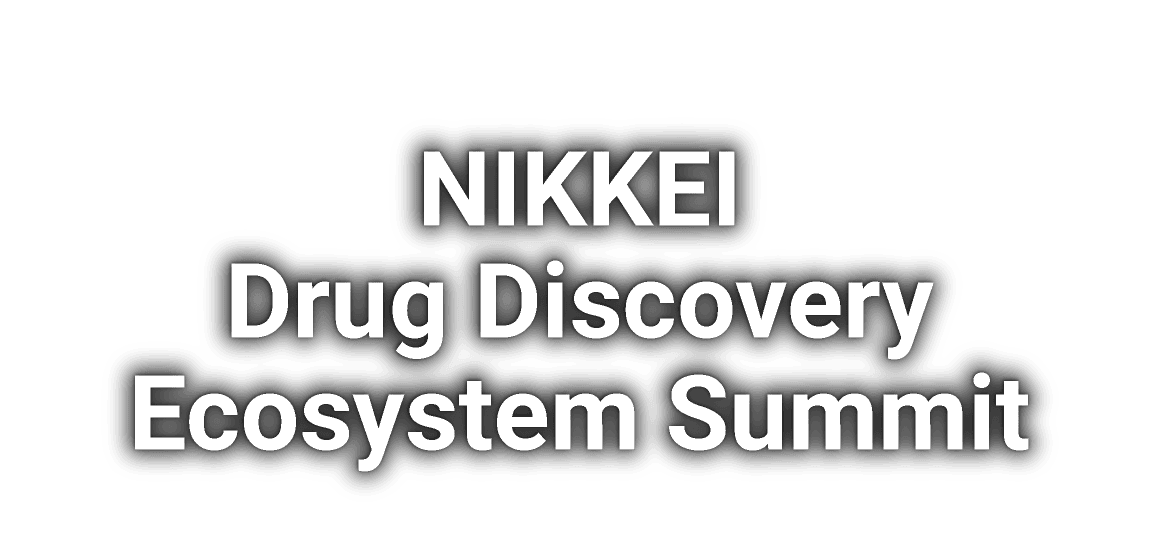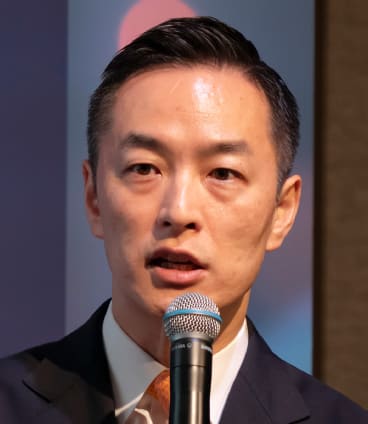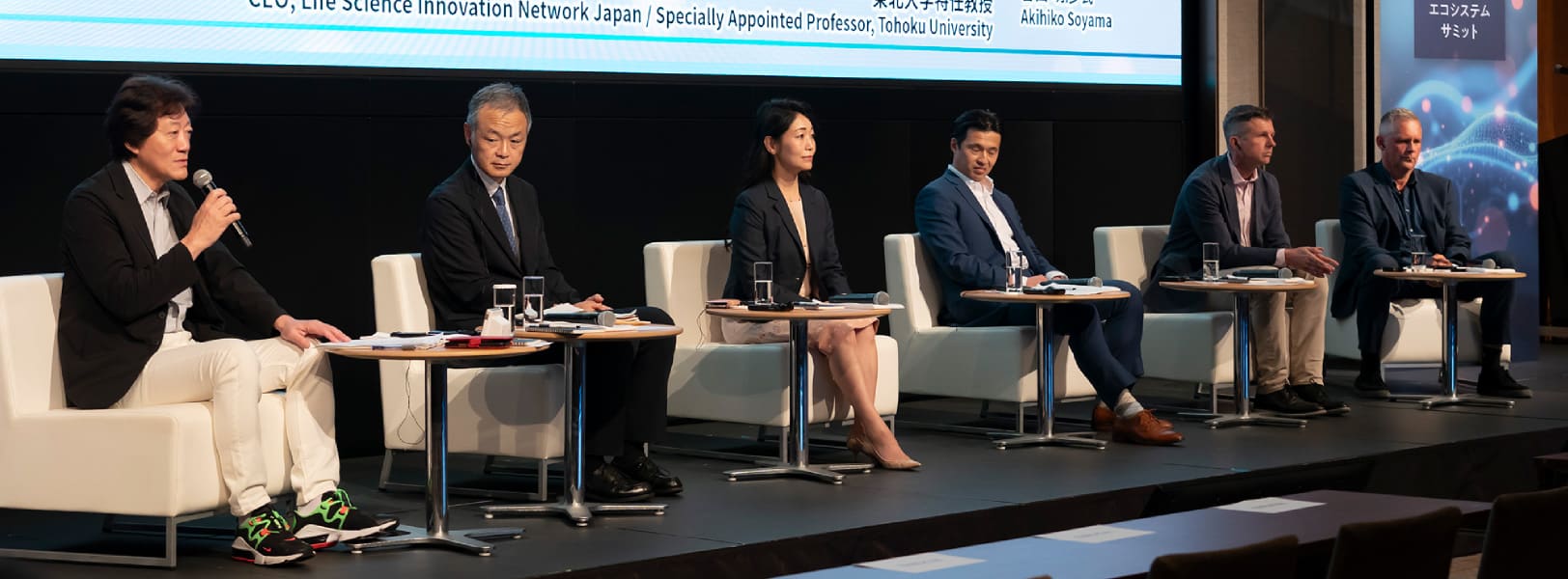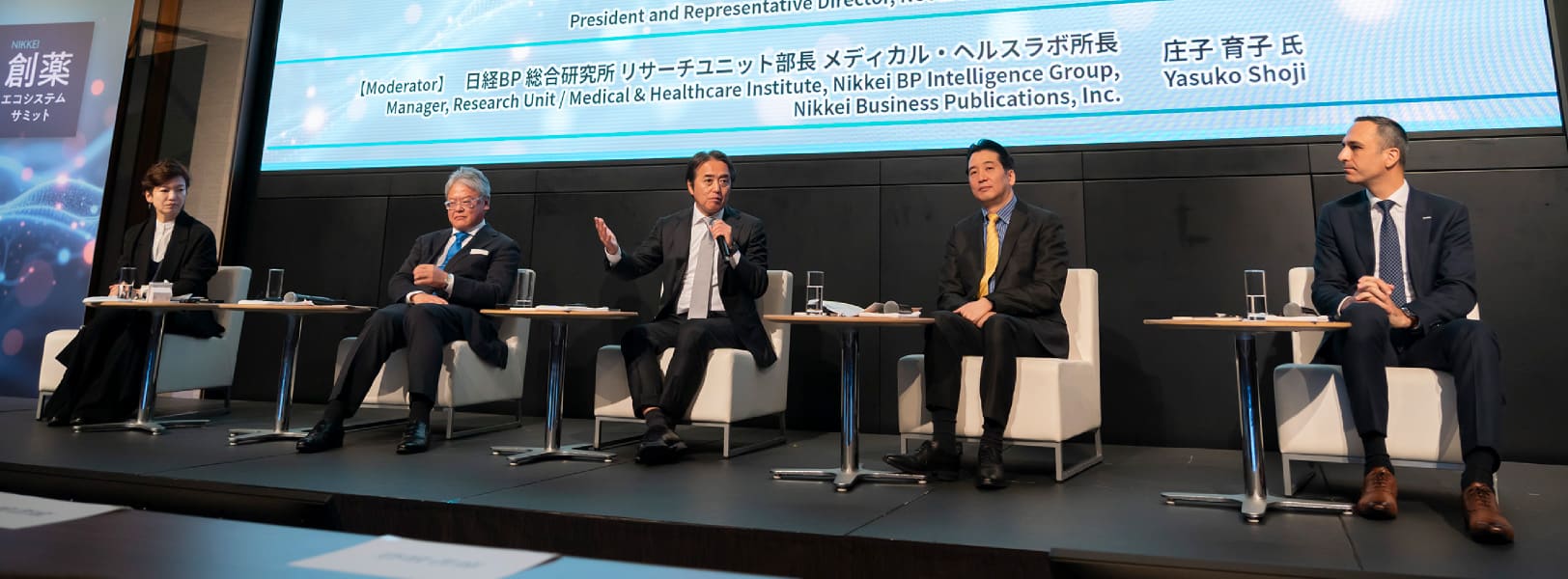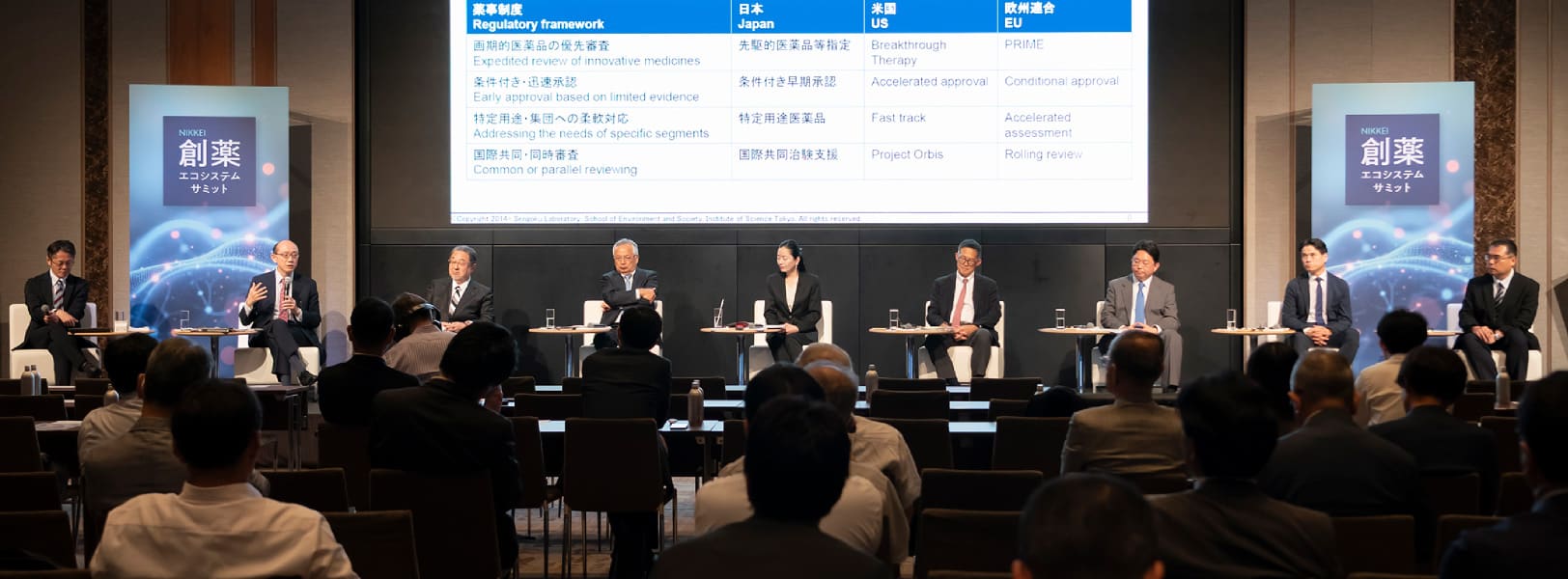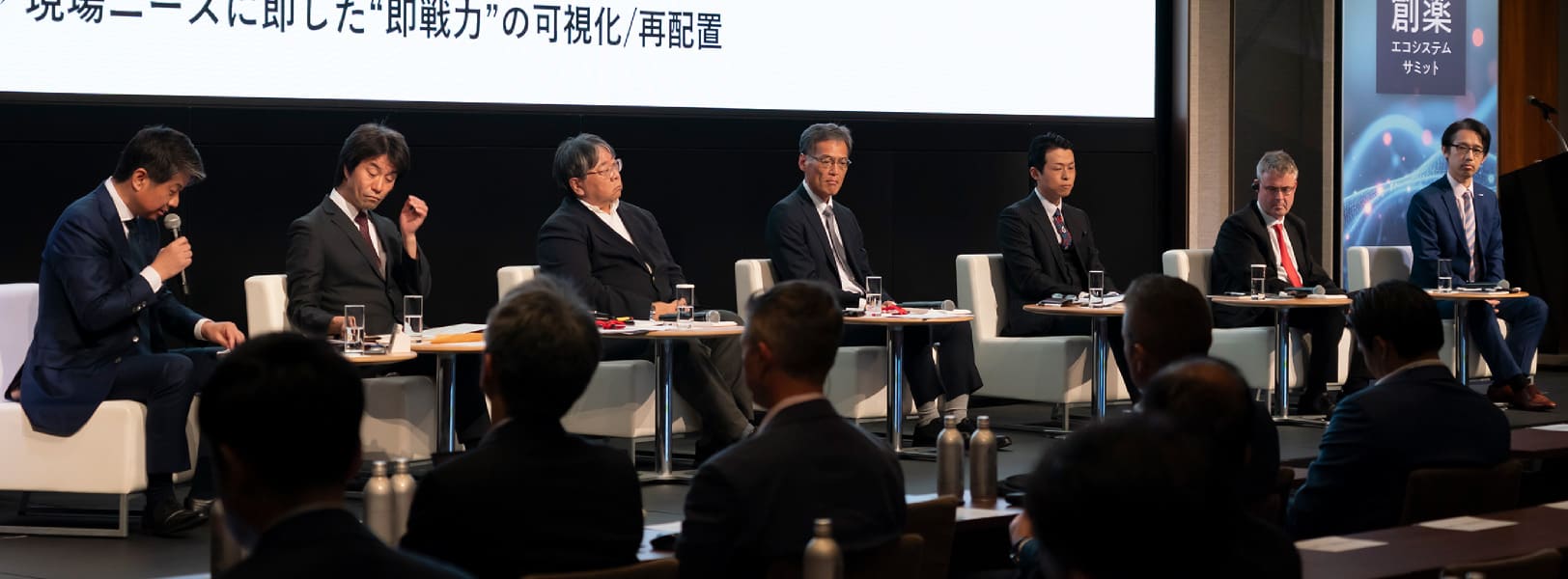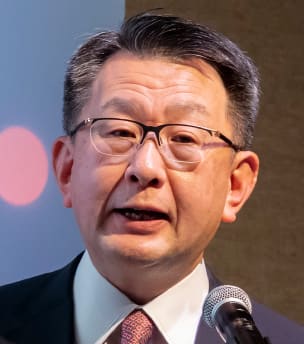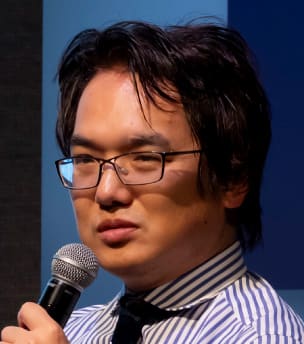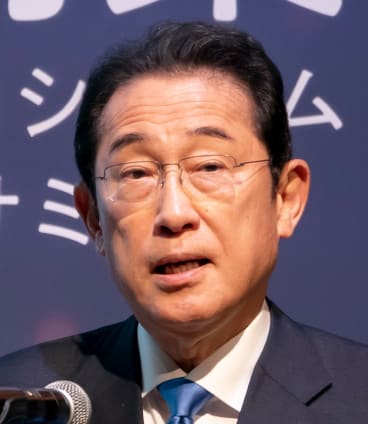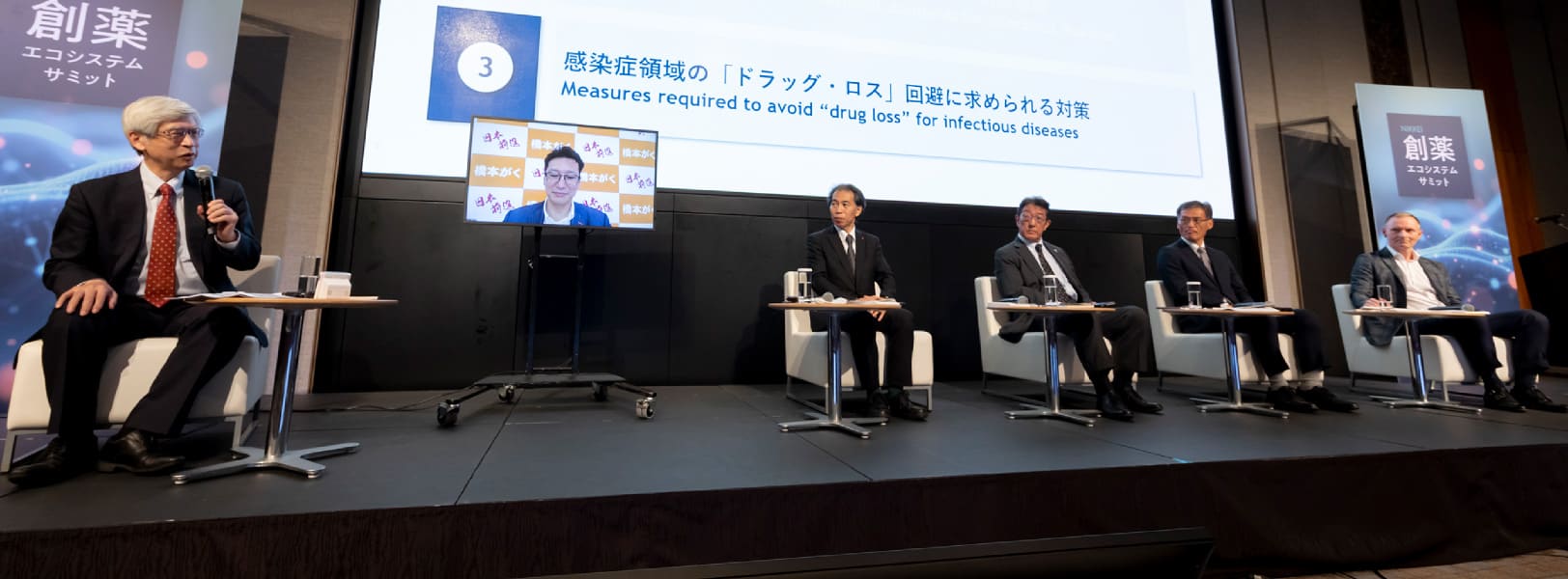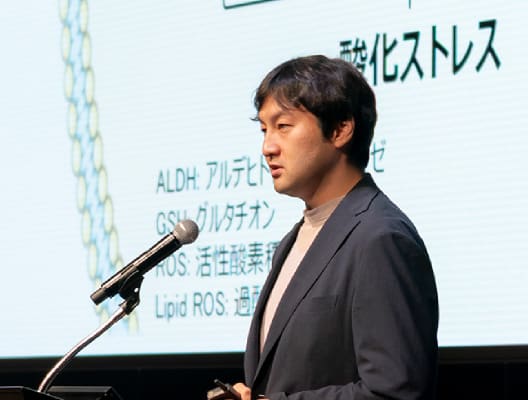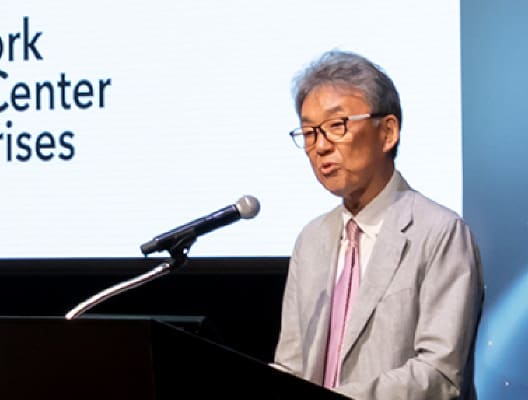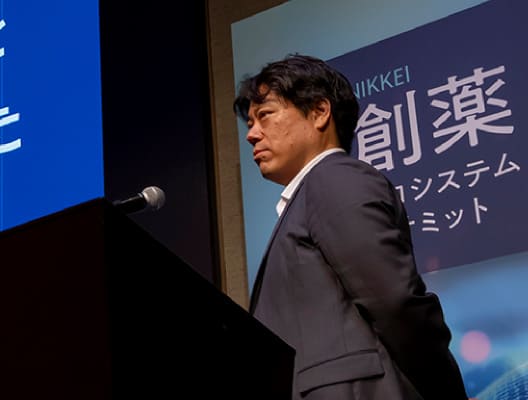Akihisa Shiozaki
Member of the House of Representatives
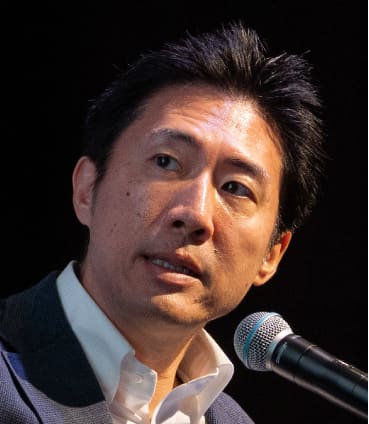
Akihisa Shiozaki
Last fall, the Nobel Prize in Chemistry was awarded in part to researchers at Google DeepMind. AI has made drug discovery dramatically easier. Now is probably the best time ever to start a drug discovery company. Japan, however, is a weak player on the world stage. The message of the white paper I presided over at the MHLW last year is that founders cannot succeed by themselves. They need a whole ecosystem of advisers, investors, managers and production facilities around them. Taking inspiration from baseball player Shohei Ohtani’s success in the US Major League, Japan should build an ecosystem directly connected to the rest of the world.
Drug Discovery Frontiers from Japan: Connecting with the Global Community
Kiyofumi Kaneshiro
Chief Financial Officer, PeptiDream Inc.
Hiroshi Miyake
Chief Executive Officer, Chordia Therapeutics
Shin Kaneko
Professor, Center for iPS Cell and Research Application, Kyoto University
Professor, Faculty of Medicine, University of Tsukuba
Shinichiro Komoto
Eight Roads Ventures Japan・Partner
Takeyuki Akiyama
Director, Japan Alliance for Lysosomal Disease Patient Organizations
Kanae Kurata
Director, Life Sciences Division, Research Promotion Bureau, Ministry of Education, Culture, Sports, Science and Technology (MEXT)
<Moderator>
Aya Kubota
Editor in Chief, Nikkei Biotechnology & Business, Nikkei Business Publications, Inc.
“Japan has many excellent technologies, but isn’t very good at operations. To survive, you need a presence in the global ecosystem,” noted Kiyofumi Kaneshiro, CFO of “Drug Discovery Powerhouse” PeptiDream. Hiroshi Miyake commented that the unique business model of small venture biotechs yet to turn a profit can make it difficult for them to win the understanding of investors and talent.
Nonetheless, rapid change in Japan prompted Shinichiro Komoto to switch to investing in Japanese healthcare startups in 2017. His company’s strategy is about the “cross-border expansion of Japanese science,” whether by transferring Japanese technologies to startups overseas or bringing biotechs into Japan for cost-efficient R&D. “We should get overseas talents to establish companies here or create companies abroad with American management,” Komoto said.
Tellingly, Shinobi Therapeutics, the company of which Shin Kaneko is scientific co-founder, only got connected to a “virtuous circle of people” when it moved its HQ to the United States. Emphasizing his own success in juggling a joint career as a researcher and an entrepreneur, Kaneko expressed the hope that Japan would create a hybrid environment where researchers could simultaneously advance their academic careers and run businesses.
Kanae Kurata outlined MEXT’s initiatives to enhance drug discovery. These include supporting human resources development in academia, basic and applied research, and the “diamonds in the rough” of academia-launched medical startups.
Takeyuki Akiyama was keen to stress that the “global community” should not mean only the United States. What about Asia? It makes sense, for example, to get Asian children to participate in clinical trials for Lysosomal disease treatments, so that drugs developed and approved in Japan get automatic approval in Asia.
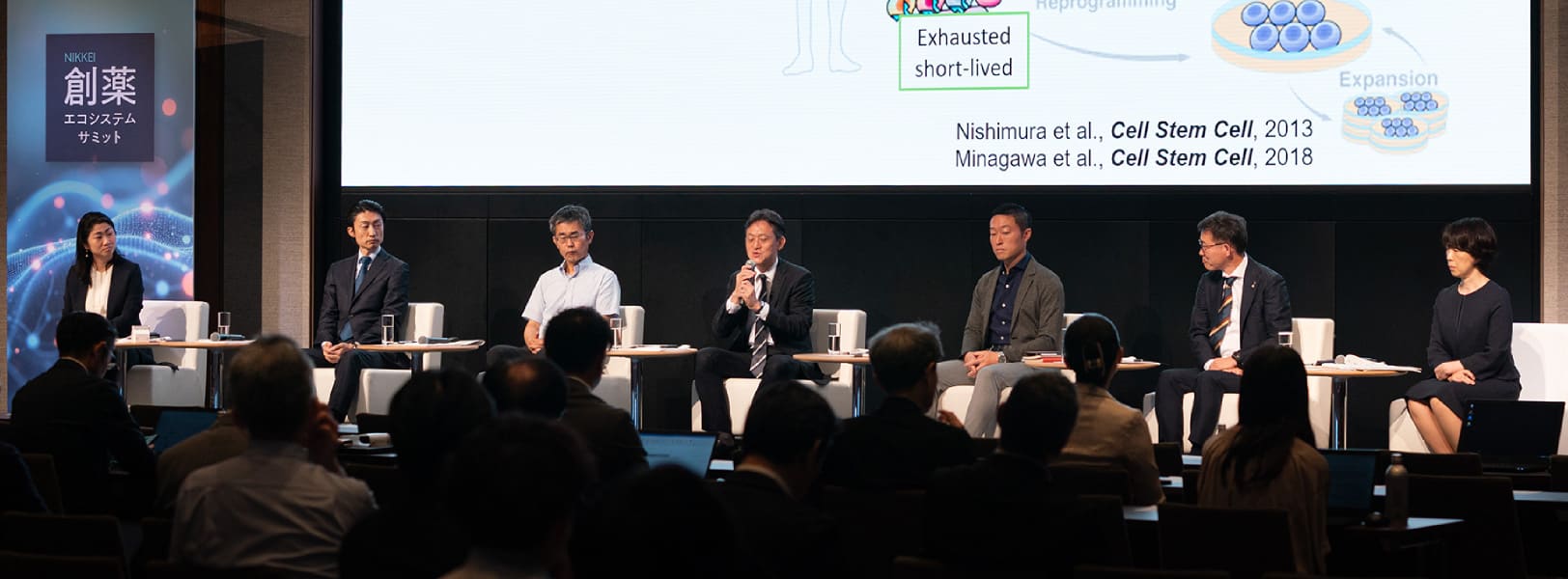
Co-creation and Innovation from the Patient's Perspective
Jin Shiomura
Founder, Managing Director & CEO of Nobelpharma
Sumito Nishidate
Chairman of the GIST & Sarcoma Patients and Families Association "NPO GISTERS"
Kazuhiko Mori
Senior Managing Director of Japan Pharmaceutical Manufacturers Association
Masami Sakoi
Chief Medical and Global Health Officer of Ministry of Health, Labour and Welfare
<Moderator>
Asuka Miyabashira
President of Japan Pharmaceutical Manufacturers Association
A successful drug discovery ecosystem cannot be built without incorporating patients’ perspectives. By listening to patients, pharma companies can identify pain points and challenges, and develop the right medicines. Of course, it is important for all stakeholders — regulators, academia and private companies, as well as patients’ associations — to work together.
Unapproved drugs can help cure or extend the lives of patients. However, Article 68 of the Japanese Pharmaceutical and Medical Device Act limits access to information on unapproved products. Refractory patients thus lack access to data as well as drugs. This dearth of information can backfire by making subjects reluctant to enroll in clinical trials.
When patients request unapproved drugs, the government response should not be excessively slow. Justifiable caution should be balanced against the awareness that with intractable diseases time is often limited. Platforms where issues can be discussed openly and calmly are crucial to the successful co-creation of innovative drugs.
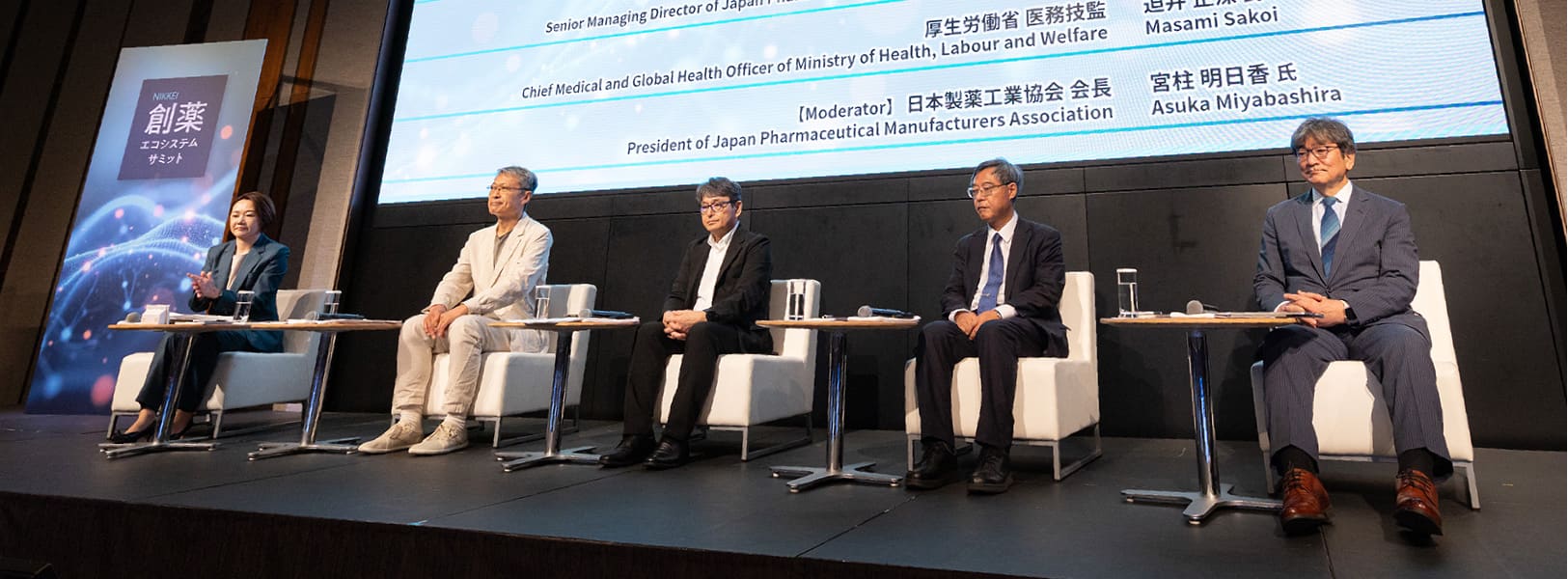
Kazuhito Ihara
Vice-Minister of Health, Labour and Welfare
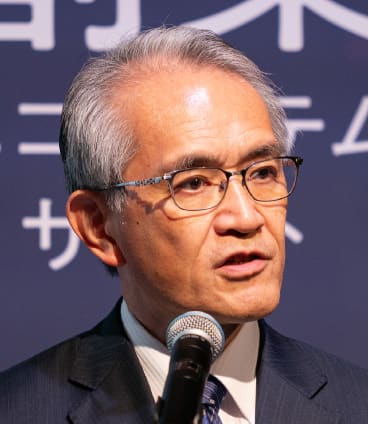
Kazuhito Ihara
In the early 2000s, Japanese pharma companies released many internationally bestselling blockbuster drugs. Today, things have changed. Small molecule drugs no longer sell well and, unable to shift modalities, Japan is behind in biopharma. We must create an open innovation community to tackle new modalities, and we must nurture and attract talent. With healthcare security a major new challenge, reliable domestic manufacturing capacity is clearly essential. Collaboration between the private and public sectors is another crucial factor.
Digitalization and AI are ever more important in drug discovery. Since Japan has universal healthcare, it has abundant data. We must learn to utilize that data effectively.
Innovation in Drug Discovery Driven by AI and DX
Yasushi Okuno
Professor, Department of Biomedical Data Intelligence, Graduate School of Medicine, Kyoto University
Akira Izumi
CEO & Founder, RyuWell Co.,LTD
Hidenobu Ishizaki
Executive director, Center for Development of Advanced Cancer Therapy, Cancer Institute Hospital, Japanese Foundation for Cancer Research (JFCR)
Hiroyoshi Toyoshiba
Director/ Chief Technology Officer, FRONTEO Inc.
Hiroyuki Tsunoda
Deputy Head of Research Division, Chugai Pharmaceutical Co., Ltd.
<Moderator>
Masanori Shindo
Deputy General Manager, Life Intelligence Consortium general incorporated association
This panel examined how AI is currently being used, data-collection challenges and the leveraging of real-world data. Yasushi Okuno painted a future scenario of AI reading scientific literature, generating a hypothesis, getting a robot to conduct an experiment and then publishing a paper read in turn by AI to create an “AI agent-based loop.” According to Hiroyuki Tsunoda, Chugai is aiming for something similar with MALEXA, its AI-based antibody discovery technology. Meanwhile, Hiroyoshi Toyoshiba explained how FRONTEO’s proprietary AI identifies target molecules or disease mechanisms by using discontinuous discovery to find undiscovered connections between scientific publications.
Data collection and sharing is a challenge. Even within the same company, data sets are not necessarily standardized, while pharma companies are understandably reluctant to share data with rivals. Federated learning, which involves training AI models without the data being shared, is a practical solution to the data-privacy problem.
Real-world data has issues, too. The medical data of patients belongs to patients. Why expect them to provide it for free when it will become a source of corporate profit? Finding a balance is important, argued Hidenobu Ishizaki. “We need to get patients’ acceptance and make clear the benefits that will accrue to them,” Akira Izumi added. With doctors making detailed or vague notes depending on their personality, the harmonization of hospital data is another challenge. One solution is for doctors to use structured templates.
Using AI is all the more urgent for Japan as a late starter in the new modalities. Data sharing and integration across organizations can help make Japanese drug discovery globally competitive again.
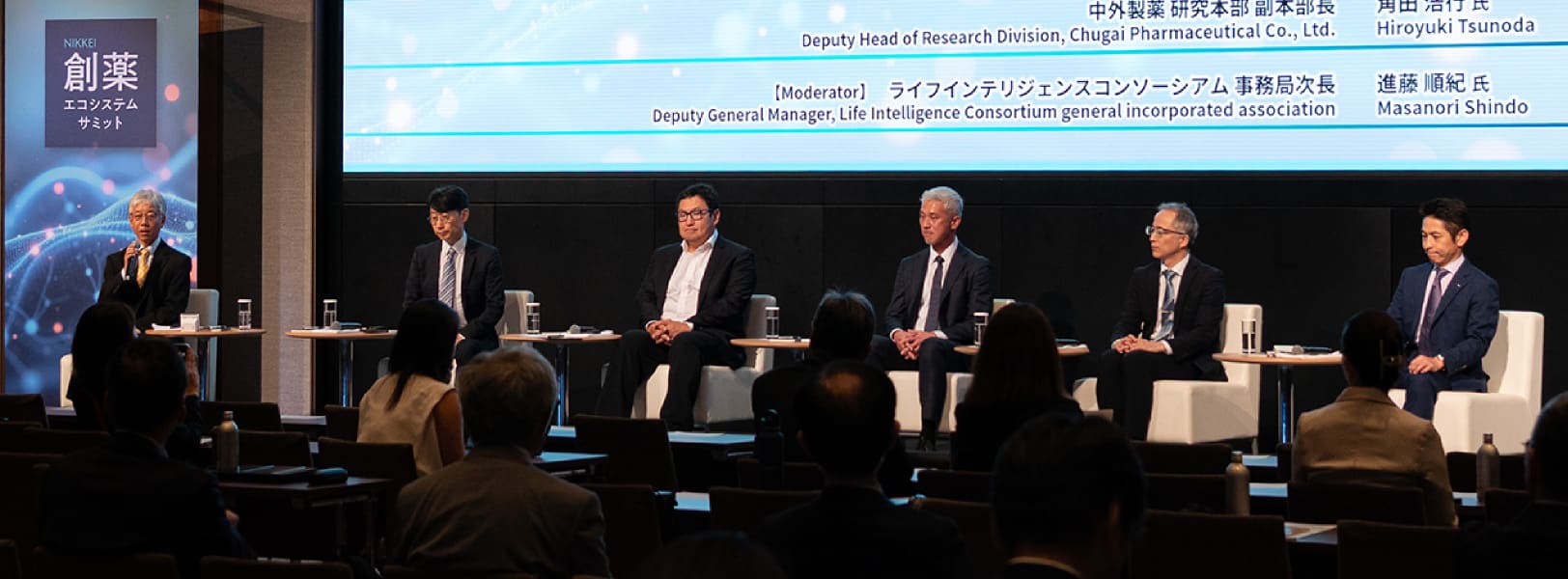
Leading Where Medicine Is Going
Sarah Brennan
Company Group Chairman, Global Commercial Strategy Organization, for Johnson & Johnson Innovative Medicine
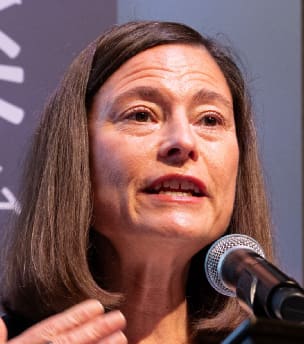
Sarah Brennan
The number of new modalities launching globally has increased more than 230% over the last 15 years. The next wave of innovation will be defined by modalities unlike anything seen before. Medicine is already being transformed by examples such as cell therapy, bi-specific and tri-specific antibodies, oral peptides and gene editing.
Unfortunately, Japan is not keeping pace with the speed of change. Its system for evaluating new drugs does not adequately assess the value of new modalities. The current pricing system also diminishes the usefulness premium for transformative therapies, which is in sharp contrast to Japan’s innovation agenda.
Three actions are urgently needed. First, reset the innovation premium to evaluate and reward new modalities. Second, ensure predictability, transparency and consultation in decision-making. This is vital for Japan to secure investment and regain biopharmaceutical leadership. And third, foster a competitive ecosystem by committing to longer-term plans and measurable, growth-oriented goals.
Toward a Japanese Drug Discovery Ecosystem
Shintaro Sengoku
Professor, School of Environment and Society, Institute of Science Tokyo
Asuka Miyabashira
President of Japan Pharmaceutical Manufacturers Association
Takahiko Iwaya
Chair of European Federation of Pharmaceutical Industries and Associations, Japan (EFPIA Japan)
Hans Klemm
Japan Representative, Pharmaceutical Research and Manufacturers of America (PhRMA)
Hitoshi Nakagama
President, Japan Agency for Medical Research and Development (AMED)
Kazuto Yamada
President and CEO, Japan Tissue Engineering Co., Ltd.
<Moderator>
Kiyoshi Ando
Senior Staff Writer, Nikkei Inc.
The final panel was dedicated to an exploration of concrete next steps in light of the summit’s many discussions. Japan, once a pharmaceutical powerhouse, has fallen behind globally over the past decade. How can its drug discovery ecosystem be revived?
Asuka Miyabashira emphasized the importance of making Japan a more attractive marketplace. Startups looking to launch new products are unlikely to be drawn to a market with no growth — particularly when innovative drugs may face government-controlled price reductions even during the patent period.
Government should play a more direct role to enhance innovation. Smarter public investment, Shintaro Sengoku suggested, could help more startups survive the “Valley of Death” between founding and first returns. Kazuto Yamada spoke of his company’s experiences developing regenerative medicine therapies when the field was so new that they worked hand-in-hand with regulators to ensure that both public and private interests were served. Hans Klemm called for a fully developed national pharmaceutical strategy, with objectives, KPIs and remediation plans if these are not met.
Japan must also be plugged into broader, global ecosystems, with ideas flowing both ways — not least because, as Takahiko Iwaya explained, pharmaceutical multinationals have centralized their R&D operations since the 2000s. Hitoshi Nakagama noted in this context that genetic commonalities could support a multi-stage approach, with Japan strengthening links first within Asia and then elsewhere overseas.
Some changes, like eliminating outdated regulations not suitable for new modalities, are needed urgently. Other forms of ecosystem-building will require decades of patient investment. A “grand design” for reviving Japan’s drug discovery ecosystem, to borrow moderator Kiyoshi Ando’s phrase, will likely combine both perspectives.
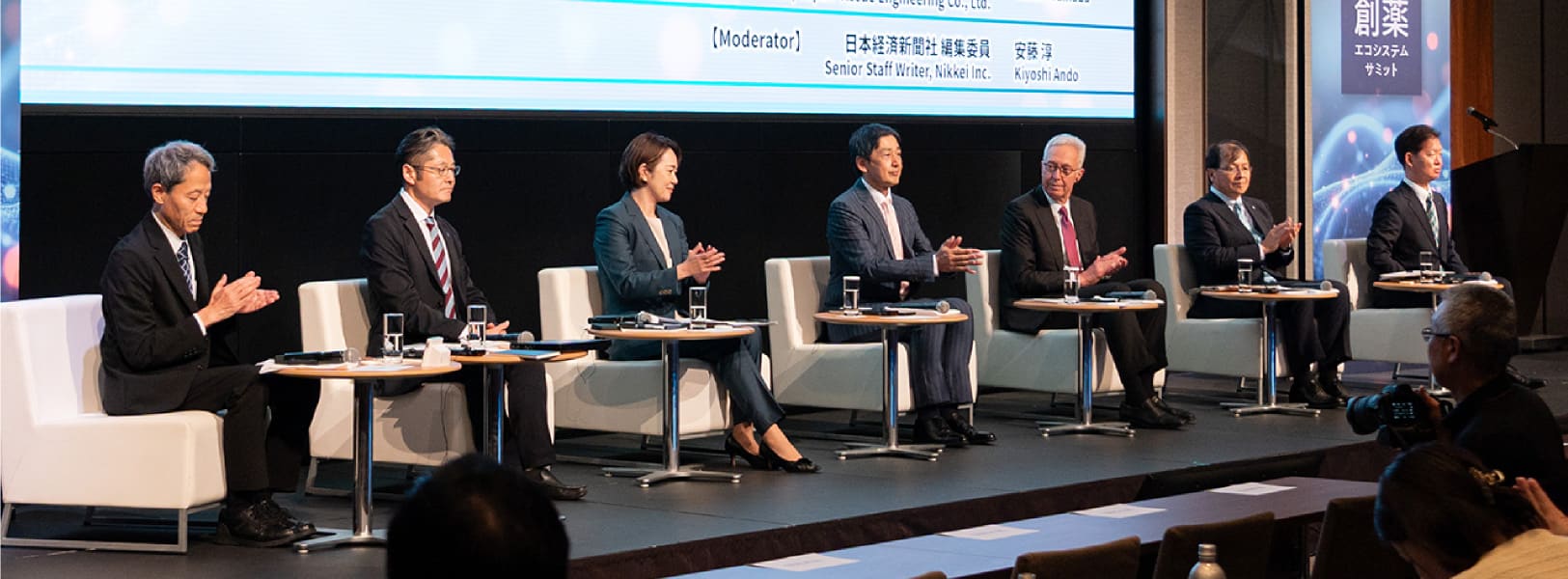
Nikkei Drug Discovery Startup Pitch Finalists: Day 2
Drug discovery startups selected as finalists in the 2025 Nikkei: The Pitch project were invited to pitch at the summit. The individual pitches from Day 2 are summarized below.
<Presenters>
Yasuyuki Yokosaki
Founder and CSO, Antibody Therapeutics
Kensuke Kato
CEO, Stem Cell & Device Laboratory, Inc. (SCAD)
Ryo Kamezawa
Co-Founder, CFO, Chiral
Antibody Therapeutics aims to overturn the common wisdom that fibrosis is incurable with treatments targeting idiopathic pulmonary fibrosis. It developed the world’s first antibody to inhibit the function of integrin α8β1, and it is now working to bring this to market.
Stem Cell & Device Laboratory (SCAD) has developed a groundbreaking technique for regenerating damaged nerves using Schwann cells derived from ES/iPS cells. SCAD is the first in the world to successfully establish large-scale production of Schwann cells with the quality and regenerative capabilities required for clinical applications.
Chiral is a platform that accelerates “in-silico drug discovery” by making advanced techniques accessible, including simulations, machine learning and agentic AI that identifies and prioritizes high-value experiments for active learning.
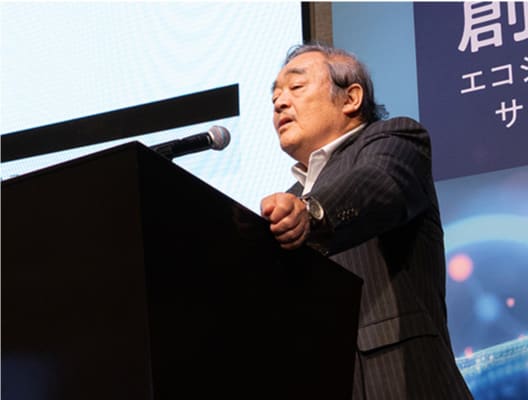
Yasuyuki Yokozaki
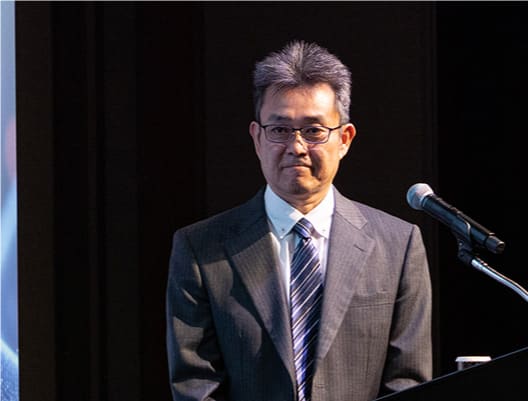
Kensuke Kato
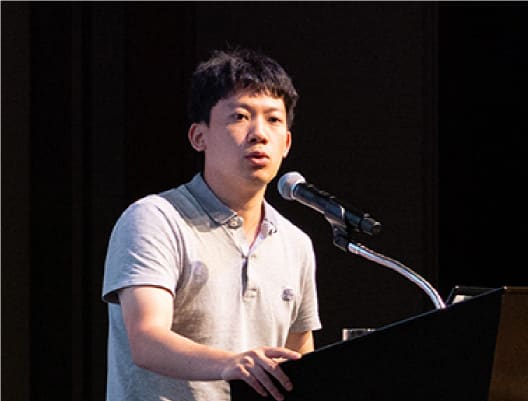
Ryo Kamezawa
